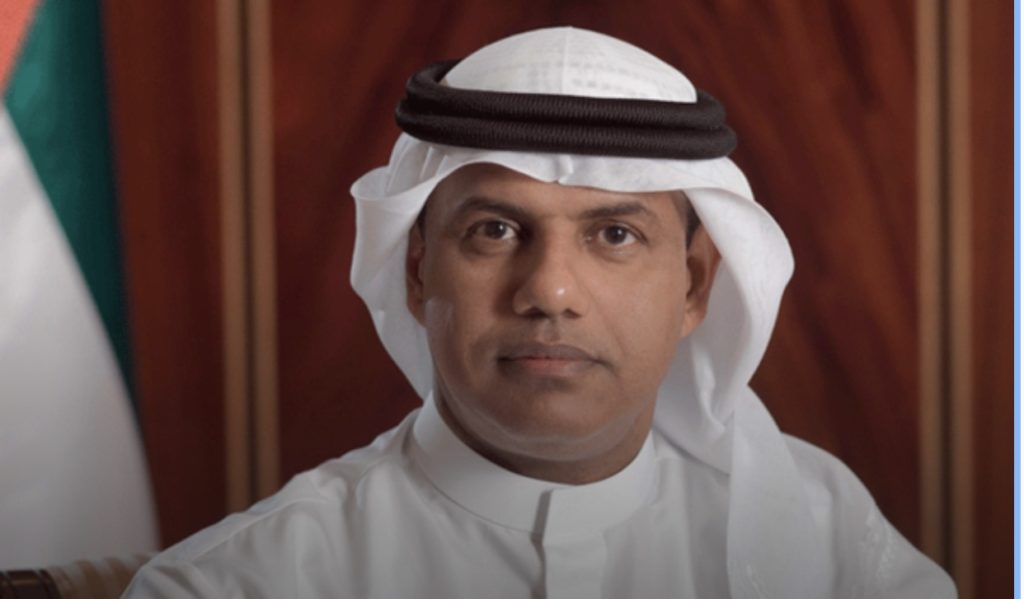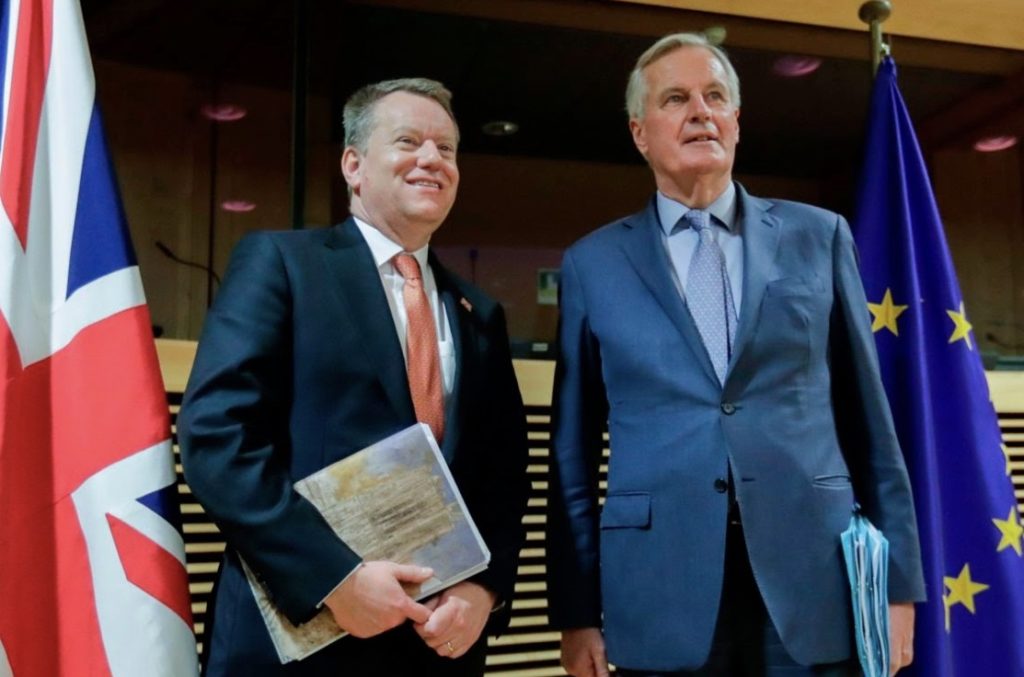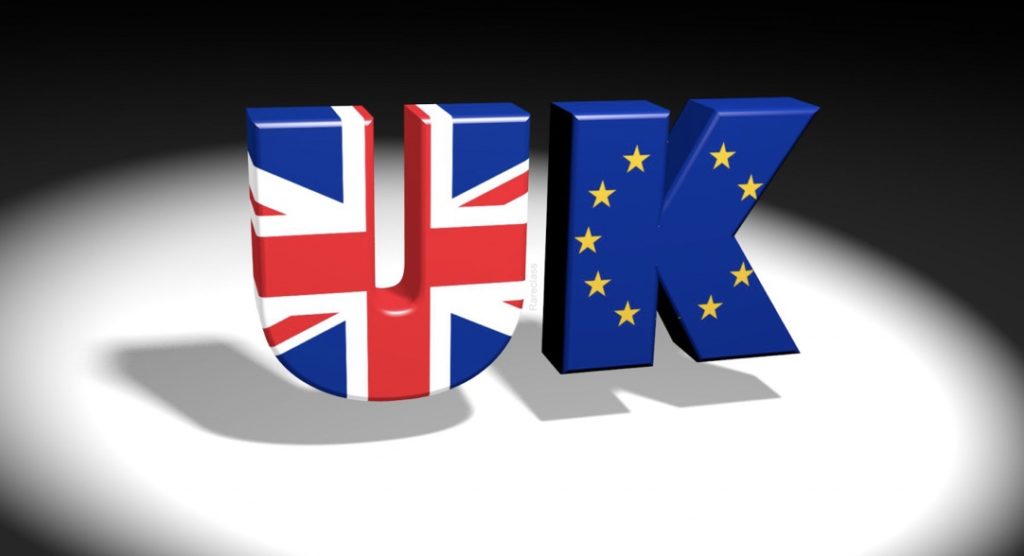British negotiators have rejected participation in the ‘safety and security zone’ despite accepting it would significantly increase border delays.
The Government’s no-compromise approach emerged after the first round of trade talks in Brussels last week, where British negotiators rejected participation in the EU’s “safety and security zone” despite accepting it would significantly increase border delays.
To read the article , click here: Truckers face paperwork mountain after Britain opts against fast-track security checks agreement with EU
Source: The Telegraph
The World Customs Organization has approved Dubai Customs’ initiative of launching an international platform for the best practices and Authorized Economic Operator (AEO) mutual recognition agreements among AEO members.
Dubai Customs will lead the way in facilitating the exchange of secure data between the WHO and the member customs administrations.

The WCO endorsed the initiative in the latest Brussels SAFE sessions last October. Dubai Customs was selected to develop the AEO platform owing to its world class status in customs innovation and adoption of AI advanced technologies.
Musabih stated that Dubai Customs has played a pivotal role in activating and implementing the Authorized Economic Operator in the UAE under the aegis of the UAE Federal Customs Authority. There are 70 companies registered in the program now.
Recent figures released by Dubai Customs showed that 5.6 million customs transactions have been completed through the Authorized Economic Operator in 2019, and this makes 43% of the total 13 million.
Member companies made 36% operational cost reduction and 53% faster customs clearance.
Director General of Dubai Customs restated the great role AEO will play in supporting national efforts to host EXPO 2020.
The WCO has also agreed to the request of Dubai Customs and the Federal Customs Authority to reschedule the 5th WCO Global AEO Conference to 15 – 17 February 2021, in Dubai, UAE. The new date will be in conjunction with EXPO 2020, which makes it a better opportunity for all parties to exchange expertise and best practices in trade, economy, culture and innovation.
Eman Badr Al-Suwaidy, Director of Customs Valuation Department, who is in charge of the Authorized Economic Operator program, said the program is a WCO requirement to facilitate trade, and cooperation between customs administrations and the private sector is very important.
The Authorized Economic Operator (AEO) program is a partnership between trade community and customs administrations, in which actors in the global supply chain can apply for AEO status to receive trade facilitation benefits and, at the same time, verify and increase their level of compliance and security.
In the Brexit talks, the English Channel looks wider than ever — but a deal by the end of the year is more likely than many think.
The gulf between the two sides has been widened by Boris Johnson’s insistence that the U.K. wants maximum sovereign divergence from Brussels. On three key issues — state aid, dispute resolution and fishing — what the EU is asking for is not just problematic for the U.K.; it’s anathema.

Paradoxically, the U.K. government’s decision to cut loose the aim of Johnson’s predecessor Theresa May for a “deep and special partnership” with the EU has injected a dose of realism.
But cut through the noise and there is a landing zone for a deal.
As Sam Lowe, senior research fellow at the Centre for European Reform, has pointed out, the U.K. accepts that leaving the EU’s single market and customs union means more autonomy but also more barriers to trade. There is none of the cognitive dissonance of the early May era, when the U.K. wanted to “have its cake and eat it.”
“Beyond the headline issues the two parties aren’t so far apart,” Lowe said.
“A landing zone will only really become visible later on,” agreed Georgina Wright, senior researcher at the Institute for Government think tank. “Now it’s all about standing up for your interests and constituencies [or at least being seen to be] … A basic U.K.-EU deal in goods which covers some aspects of services is possible, but it will require both sides to compromise.”
A former U.K. trade official, speaking on condition of anonymity, agreed. “On the trade side, the points of convergence are remarkably similar,” the official said. Crucially, both sides agree that avoiding tariffs and quotas on trade in goods is desirable. However, it remains to be seen if the EU will compromise on its demand for regulatory alignment or whether the U.K. will budge on its objection to such level playing field requirements.

For all the tub-thumping rhetoric about taking back control of U.K. fishing waters, it is relatively easy to see a happy middle ground between the two sides. The U.K. wants annual negotiations with the EU over access to each other’s waters while Brussels wants, more or less, to maintain the status quo. U.K. Environment Secretary George Eustice signaled on Wednesday that some aspects of the fisheries question could be negotiated on a multiannual basis, suggesting that the U.K. position could be malleable.
On state aid and the wider role of the Court of Justice of the European Union in enforcing the agreement, U.K. negotiators are more hard-line.
The EU wants its state aid rules to apply in the U.K., with a role for the CJEU in deciding if and when the U.K. had overstepped the mark. British negotiators say that is not acceptable.
Some observers in the U.K. wonder whether Brussels’ approach is a little over the top. “The U.K. is historically much more strict than other EU member states” at enforcing state aid rules, the former trade official said.
Lowe and other experts point out that it should be possible for the EU to devise an arbitration mechanism that could settle any (likely minor) disputes around the use of state aid without direct recourse to the CJEU.
But while the EU may need to budge a little, the U.K. as the junior economic partner in this negotiation will be under more pressure to compromise.
Despite the seemingly intransigent rhetoric, the political conditions in the U.K. make compromise more likely. The political temperature around Brexit has cooled dramatically since the general election in December. With a healthy majority, Johnson has comfortable room for political maneuver should he have to make the odd concession.
Yes, nothing is guaranteed given that negotiators have just a few short months to secure a deal. And yes, there will need to be compromises. But Johnson’s lack of ambition for the end state of the future relationship and apparent willingness to take an economic shock from pulling the U.K. away from its biggest trading partner make a deal more doable.
It will be limited, it will be a long way from how things were before. But it will be a deal.
Source: Politico






You must be logged in to post a comment.